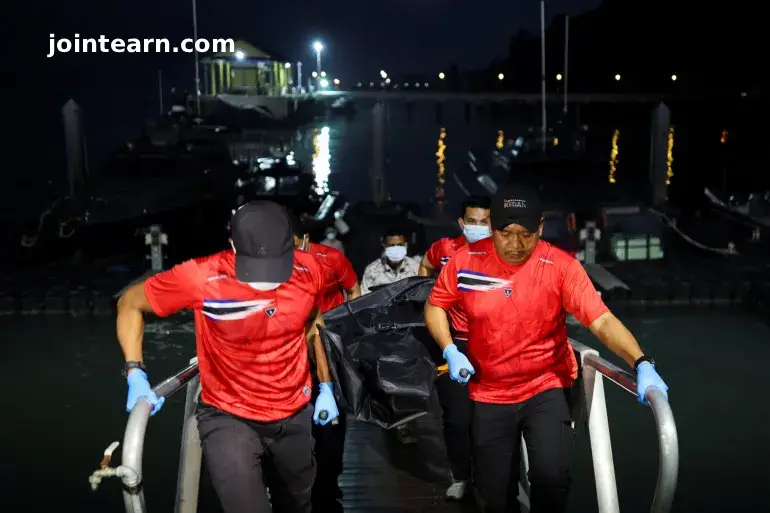
Tragedy Strikes: Rohingya Refugee Boat Sinks Near Langkawi
Authorities in Malaysia and Thailand have recovered at least 21 bodies and are continuing to search for survivors after a boat carrying Rohingya refugees capsized near Ko Tarutao Island, north of Langkawi, on Monday.
The vessel, which departed from Myanmar’s Rakhine State three days earlier, was carrying an estimated 70 refugees fleeing persecution and humanitarian crisis. Officials said 13 survivors were rescued in Malaysian waters, while dozens remain missing at sea.
Search and Rescue Operations Underway
The Malaysian Maritime Enforcement Agency (MMEA) confirmed that search operations began on Saturday and will continue for at least seven days, focusing on the waters between Ko Tarutao and Langkawi.
“We are doing everything we can to locate survivors,” said Romli Mustafa, MMEA director for the northern states of Kedah and Perlis.
The capsized boat was reportedly part of a larger convoy of about 300 refugees, divided between two vessels as they attempted to reach Malaysia, a frequent destination for Rohingya Muslims seeking safety and employment opportunities.
Fate of Second Boat Remains Unknown
Authorities said one boat carrying around 70 refugees sank shortly after departure, while the fate of another vessel carrying 230 people remains unclear. Officials fear that strong currents and poor weather may have caused additional incidents at sea.
The tragedy highlights the ongoing refugee crisis in the Bay of Bengal and Andaman Sea, where thousands of Rohingya continue to risk their lives in perilous journeys to escape persecution.
UN: Over 5,100 Rohingya Attempted Sea Crossings in 2025
According to data from the United Nations Refugee Agency (UNHCR), more than 5,100 Rohingya refugees boarded boats from Myanmar and Bangladesh between January and early November 2025. Nearly 600 have been reported dead or missing, underscoring the deadly risks of these journeys.
For many Rohingya, Muslim-majority Malaysia and Indonesia are preferred destinations due to perceived safety and community ties. However, the journeys often involve human trafficking networks, unsafe boats, and limited government rescue efforts.
The Rohingya Crisis: A Continuing Humanitarian Catastrophe
The Rohingya Muslim minority has long faced persecution in Buddhist-majority Myanmar, where the government denies them citizenship, labeling them as illegal immigrants from South Asia.
Years of violence in Rakhine State have forced hundreds of thousands to flee to neighboring countries or to refugee camps in Bangladesh, such as Cox’s Bazar, now among the world’s largest refugee settlements.
Despite international condemnation, systematic discrimination and violence continue, pushing many to undertake dangerous maritime crossings in search of safety.
Regional Response and International Concern
Both Malaysian and Thai authorities have faced criticism in the past for turning away refugee boats or detaining survivors in overcrowded facilities. Human rights organizations have urged regional governments to implement joint rescue operations and safe disembarkation policies for Rohingya refugees.
Aid agencies have also called on the international community to address the root causes of the crisis in Myanmar and to expand asylum protections in Southeast Asia.
Key Takeaways
- 21 Rohingya refugees confirmed dead, dozens missing after a boat sank near Langkawi, Malaysia.
- The vessel carried about 70 passengers, part of a larger convoy of 300 people fleeing Myanmar.
- 13 survivors rescued; search operations ongoing for seven days.
- UNHCR data: 5,100 Rohingya fled by sea in 2025, 600 dead or missing.
- Crisis underscores ongoing persecution of Rohingya Muslims and urgent need for regional cooperation.


Leave a Reply